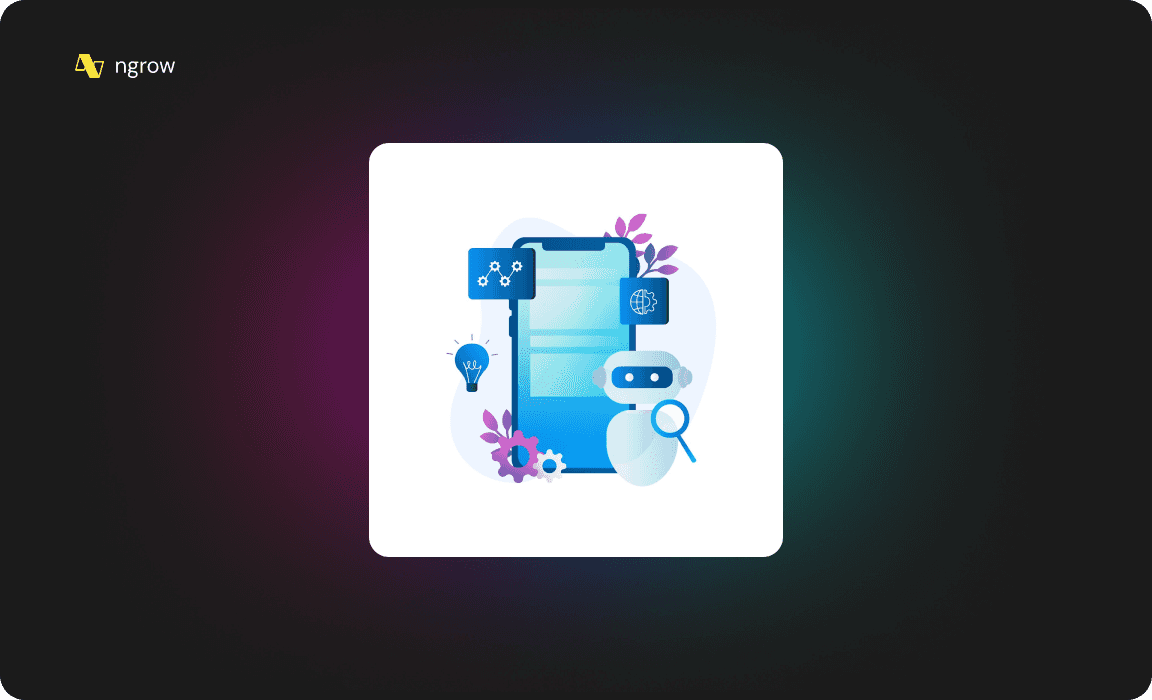3
min to read
May 30, 2024

The Role of AI in Mobile App Marketing
The mobile app market has experienced tremendous growth in recent years, with millions of apps available for download across various platforms. In this competitive landscape, mobile app marketers face significant challenges in standing out and attracting users. Artificial Intelligence (AI) has emerged as a key player in transforming mobile app marketing strategies, enabling marketers to better understand their target audience, personalize their messaging, and optimize their campaigns for maximum ROI.
Understanding User Behavior
One of the primary challenges in mobile app marketing is understanding user behavior. AI-powered tools can help marketers analyze user data, including demographics, behavior, and preferences, to create targeted campaigns that resonate with their audience. AI algorithms can identify patterns and trends in user behavior, enabling marketers to predict user engagement and optimize their campaigns accordingly.
Personalization
Personalization is a crucial aspect of mobile app marketing. AI-powered tools can help marketers create personalized messages and offers that cater to individual users' preferences and behaviors. For example, AI-powered chatbots can engage with users in real-time, offering personalized recommendations and promotions based on their interests and purchase history.
Predictive Analytics
Predictive analytics is another significant benefit of AI in mobile app marketing. AI algorithms can analyze user data and predict user behavior, enabling marketers to optimize their campaigns for maximum ROI. Predictive analytics can help marketers identify high-value users, predict user churn, and optimize their retention strategies.
Chatbots and Conversational Marketing
Chatbots and conversational marketing are becoming increasingly popular in mobile app marketing. AI-powered chatbots can engage with users in real-time, offering personalized support and assistance. Conversational marketing enables marketers to build relationships with users, increase engagement, and drive conversions.
Influencer Marketing
Influencer marketing is another area where AI is transforming mobile app marketing. AI-powered tools can help marketers identify and partner with influencers who have a significant following in their target audience. AI algorithms can analyze influencer data, including engagement rates, audience demographics, and content quality, to optimize influencer partnerships for maximum ROI.
Native Advertising
Native advertising is another significant trend in mobile app marketing. AI-powered tools can help marketers create native ads that blend seamlessly with users' mobile app experiences. AI algorithms can analyze user behavior and preferences to optimize native ad targeting and increase engagement.
Mobile App Optimization
Mobile app optimization is critical for mobile app marketers. AI-powered tools can help marketers optimize their mobile apps for better user engagement, retention, and conversions. AI algorithms can analyze user data and identify areas for improvement, enabling marketers to optimize their mobile apps for maximum ROI.
Challenges and Limitations
While AI has transformed mobile app marketing, there are several challenges and limitations to consider:
Data Quality: AI algorithms rely on high-quality data to deliver accurate results. Marketers must ensure that their data is accurate, complete, and up-to-date.
User Consent: Marketers must obtain user consent before using AI-powered tools to analyze user data and personalize their messaging.
Over-Personalization: AI-powered tools can lead to over-personalization, which can lead to users feeling overwhelmed or annoyed by too many push notifications or personalized messages.
Best Practices
To get the most out of AI in mobile app marketing, follow these best practices:
Use High-Quality Data: Ensure that your data is accurate, complete, and up-to-date to deliver accurate results.
Obtain User Consent: Obtain user consent before using AI-powered tools to analyze user data and personalize their messaging.
Monitor and Optimize: Monitor your campaigns and optimize them regularly to ensure maximum ROI.
Use AI-Powered Tools: Leverage AI-powered tools to analyze user data, personalize messaging, and optimize campaigns for maximum ROI.
Conclusion
AI is transforming mobile app marketing strategies, enabling marketers to better understand their target audience, personalize their messaging, and optimize their campaigns for maximum ROI. By leveraging AI-powered tools, marketers can create targeted campaigns that resonate with their audience, increase engagement, and drive conversions. While there are challenges and limitations to consider, the benefits of AI in mobile app marketing far outweigh the drawbacks.



